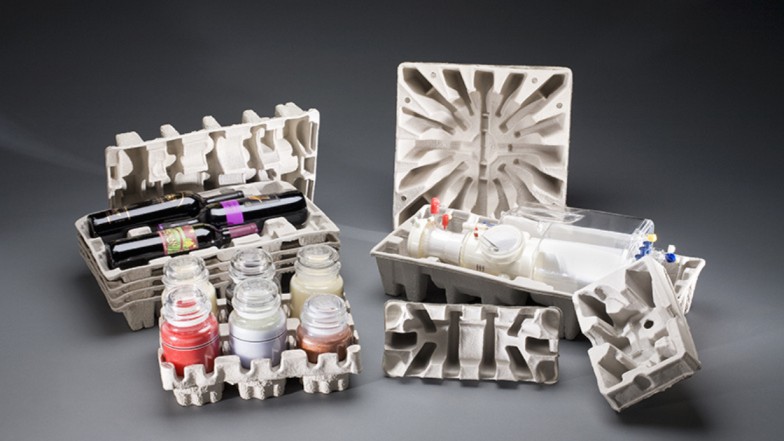
15
aug
- Tags:
MoldedFiber , EcoFriendlyPackaging , SustainableMaterials
Molded Fiber Magic: Eco-Friendly Packing
As the world increasingly prioritizes sustainability, businesses and consumers alike are searching for innovative packaging solutions that minimize environmental impact. One such solution gaining traction is molded fiber packaging. This eco-friendly option combines functionality with sustainability, making it a preferred choice for a variety of industries. In this blog, we’ll explore the magic of molded fiber, its benefits, and its applications in the realm of eco-friendly packaging.
What is Molded Fiber Packaging?
Molded fiber packaging is created from recycled paper and other natural fibers, such as bamboo or sugarcane. The process involves pulping the materials and then molding them into specific shapes and sizes, often resembling the look and feel of traditional Styrofoam or plastic packaging. Once formed, the molded fiber is dried and ready for use.
The Environmental Benefits of Molded Fiber
- Biodegradable and Compostable: Molded fiber packaging is made from natural materials, making it biodegradable and compostable. This means that when disposed of properly, it will break down naturally, reducing landfill waste and pollution.
- Recycled Content: Many molded fiber products are made from post-consumer recycled materials, helping to divert waste from landfills and reduce the need for virgin resources.
- Reduced Carbon Footprint: The production process for molded fiber typically has a lower carbon footprint than that of plastic or Styrofoam. By choosing molded fiber packaging, companies can significantly decrease their greenhouse gas emissions.
- Sustainable Resource Management: Using renewable materials, such as agricultural byproducts or recycled paper, supports sustainable forestry and agricultural practices.
Applications of Molded Fiber Packaging
Molded fiber packaging is versatile and can be used across various industries. Here are some common applications:
- Food Service: Many restaurants and food vendors are using molded fiber containers for takeout and delivery. These containers are sturdy, grease-resistant, and can hold hot or cold items without compromising quality.
- Consumer Products: Molded fiber is increasingly being used for packaging electronics, cosmetics, and other consumer goods. Its protective qualities ensure that products arrive safely while reducing the environmental impact.
- Shipping and Transportation: Companies are adopting molded fiber for protective packaging materials, such as inserts and cushioning for shipping delicate items. This helps minimize damage during transit without relying on plastic bubble wrap or foam.
- Retail Packaging: Many brands are choosing molded fiber trays or boxes for their products, creating an attractive and eco-friendly packaging option that appeals to environmentally conscious consumers.
How to Transition to Molded Fiber Packaging
If you\\\\\\\\\\\\\\\'re a business owner or consumer looking to embrace eco-friendly packaging, here are some tips for transitioning to molded fiber:
- Research Suppliers: Look for suppliers that specialize in molded fiber packaging. Consider their sustainability practices and the materials they use to ensure that they align with your eco-friendly goals.
- Educate Your Customers: If you’re a business, share the benefits of molded fiber packaging with your customers. Highlight your commitment to sustainability and how it aligns with their values.
- Consider Product Compatibility: Ensure that molded fiber packaging is suitable for your products. Some items may require additional protection, so assess the best molded fiber options for your needs.
- Explore Custom Designs: Many manufacturers offer custom molded fiber designs, allowing you to create packaging that fits your brand while being environmentally friendly.
Conclusion
Molded fiber packaging is truly a magical solution in the quest for sustainable alternatives to traditional packaging materials. Its biodegradable, compostable nature, combined with its versatility and protective qualities, makes it an excellent choice for various industries. By embracing molded fiber, businesses and consumers can reduce their environmental footprint and contribute to a greener future. Whether you’re packing food, electronics, or retail products, molded fiber offers a perfect blend of eco-friendliness and functionality, proving that sustainable choices can also be smart choices.
